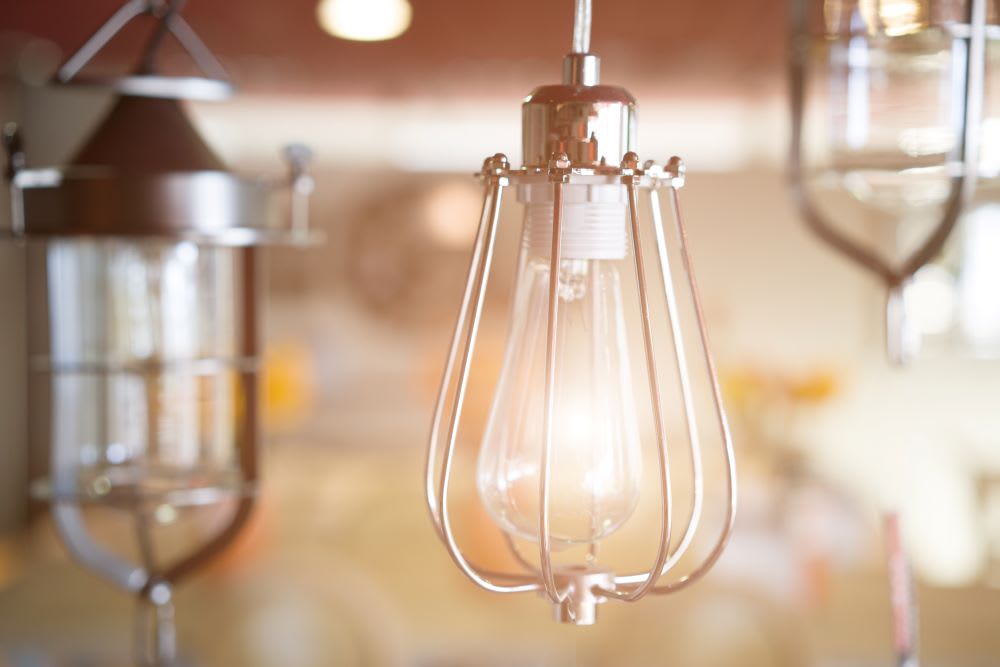Analysis: Renewables investing under Trump
Renewable investors are prepared for any outcome in the 5 November US elections, but a Trump win could create headwinds, especially for sectors like offshore wind. With the IRA likely safe from repeal, it’s been – mostly – nervousness rather than panic, Andrew Vitelli and Chuck Stanley report.
For nearly four years, renewable energy has had a champion at 1600 Pennsylvania Avenue, a president whose signature legislation provided hundreds of billions for the industry.
When we learn the results of the 5 November elections, renewables professionals will find out if such White House support can be expected to continue for another four years or whether former president Donald Trump, a longtime supporter of coal and skeptic in particular of wind power, will return to the Oval Office.
“You have two candidates that couldn’t have a starker contrast on energy issues,” Richard Glick, former chair of the Federal Energy Regulatory Commission (FERC), tells Infralogic.
While the industry is nervously awaiting the outcome of what looks like a coin flip election, the appropriate level of anxiety is up for debate. The consensus is that for established technologies – solar, batteries, and onshore wind – a Republican administration would be a speed bump and not a brick wall, even if Trump took office with narrow majorities in both the House and Senate. Trump’s rhetoric aside, experts consulted for this piece do not believe he would derail the growing clean energy economy, not when so many projects and jobs are concentrated in red states.
“Renewables, at the end of the day, have been supported by both Republican and Democratic administrations in the past,” said Don Dimitrievich, a Senior Managing Director and Portfolio Manager for Energy Infrastructure Credit at Nuveen. “We don’t necessarily see that that is really going to fundamentally change.”
But there are also fears that this view is pollyannaish, and that if Trump really does come to power with his party in control of both houses of Congress, the 2022 Inflation Reduction Act (IRA) might be in serious jeopardy. And regardless of Trump’s true intentions, this prospect may paralyze the industry should such a Republican trifecta materialize.
Offshore off track
Some renewable technologies are more at risk than others. Two of the most vulnerable sectors, most agree, are offshore wind and the rollout of electric vehicles (EVs). And the threat to offshore goes beyond potential changes to the IRA or any other legislation.
“If you told me to close your eyes and tell you what the one thing is, other than IRA, which worries you, that would be offshore,” said Sandhya Ganapathy, CEO of EDPR North America. “A lot of offshore is around federal permitting.”
While Trump declared recently that he is a “big fan of solar,” Trump has never shown such fandom towards wind power, perhaps stemming from a legal battle over an offshore project that he says marred the views from his Aberdeenshire golf resort in Scotland. He has claimed the noise they generate can cause cancer and said recently that people would not be able to watch television on windless days.
And in May, he promised to issue an executive order halting offshore wind projects as soon as he takes office.
“It is the ugliest thing. It looks like a graveyard, almost, a graveyard of windmills. It’s pollution. It’s so bad,” Trump told podcaster Joe Rogan recently. “It drives the whales freaking crazy. Something happens with them. But for whatever reason, they’re getting washed up on shore.”
The US Department of Energy has said there is no evidence that noise from wind turbines have caused whale deaths.
Onshore wind projects are less dependent on federal support, since permitting is done on the state and local level. But offshore wind is dependent on support from the federal Bureau of Ocean Energy Management (BOEM), giving a hostile administration more of a chance to disrupt the industry.
“It’s certainly foreseeable that [BOEM] could make it much more difficult for offshore wind farms to move forward in the regulatory process,” Glick said.
Trump did not shut down the then-nascent offshore wind sector in his first term in office, though his administration did slow down the approval for Vineyard Wind and put up other obstacles for the industry during the back end of his term. Still, a Trump win would lead sponsors and investors in the sector to take a more cautious approach.
“There’s still a level of uncertainty for the sector,” said Ole-Erik Endrerud, founder of wind energy analytics company Shoreline Wind. “Now, that’s maybe more around the election than other factors.”
To date, the US offshore wind market has been dominated by multinational energy and utility companies like Danish company Ørsted and Spanish company Iberdrola’s US subsidiary Avangrid. The industry could be entering a stage in which financial investors seeking derisked assets enter the space. But political uncertainty could keep these investors on the sideline, according to Theodore Paradise, power grid solutions company CTC Global’s chief policy and grid strategy officer.
Slow walking
There are other ways that Trump could slow down the renewable energy sector simply through executive action or inaction. One example is funding for renewables, such as grants and loans, included in the IRA, which the administration has discretion in distributing.
“Anything that the [Department of Energy] doesn’t get out the door now could certainly be in danger” once Trump takes office, said Glick.
The impact of this may be limited, according to a report published by David Burton and Andrew Kelbley of Norton Rose Fulbright. The Biden administration has already awarded roughly three-quarters of the USD 120bn of climate-focused grant money authorized in the IRA, and the 1974 Impoundment Control Act restricts executive authority to withhold funding appropriated by Congress.
While changing the legislative text of the IRA would require Congress, the details of how that law is carried out has been filled in by guidance issued by the IRS and regulations issued by the Treasury Department since its passage. This guidance can be as important as the legislation; revised guidance for domestic content, for example, opened the door for a 10% bonus tax credit that was previously seen as unworkable.
Some regulations have been finalized. Repealing these regulations can be done, but not without a long and arduous process involving a notice-and-comment period. Preliminary guidance, however, is easier to change with a stroke of a pen. And while the Biden administration is trying to finalize as much guidance as possible by inauguration day, not everything will be finalized by 20 January 2025.
A Republican presidency would also have an impact on the regulatory environment. While FERC is an independent agency, the president does have a say in its composition. Right now, the commission comprises three Democrats, including Chairman Willie Phillips, and two Republicans. Trump cannot change the composition until there is a vacancy, but he can install a new chair. Presumably, he would place one of the court’s two Republicans – Lindsay See or Mark Christie – in that role.
How much of a difference Trump would make for the industry also depends on whether he makes it a focus, and whether his team has the competency and experience to overcome Washington’s inertia.
“One of the things I would expect in a Trump administration, based on the people who served last time and how many of them are supporting him this time around, is that they are going to have some true believers in whatever their issues are,” says Jon Powers, the president of Clean Capital who served in the Obama administration. “Probably extreme folks. But are they capable of actually moving stuff through the bureaucracy? That is not easy.”
Removing the rose-colored glasses
For as long as the election has been a topic of discussion, renewable professionals have been touting causes for relative sanguinity – in conversations, at conferences, on panels. That is why the conversations have focused on what Trump could do without repealing or gutting the IRA.
A Trump administration wouldn’t dare jeopardize the growing clean energy economy when most of the projects, and most of the jobs, are concentrated in red states. And even if Trump wanted a full repeal, 18 Republican congressmen signed a letter urging against scrapping renewable credits. Surely, they, and likely other GOP representatives, would serve as a bulwark against anything resembling full repeal of the IRA. Besides, those dismissive of Trump’s ability to overturn the IRA cite the Obama administration’s 2010 Affordable Care Act and how Trump failed to repeal that legislation while in office despite campaign promises to do so.
Privately, according to one renewables-focused investment banker, many industry pros fear a “darker” outcome. If Trump sweeps into power with a Republican Senate and House, he will immediately look to extend or even deepen his 2017 tax cuts. To make this revenue neutral, key provisions in the IRA – which a 2023 Goldman Sachs report said is likely to cost triple the USD 391bn price tag originally projected – will be targeted. Sure, some Republicans, like those who signed the aforementioned letter, may push back on changes that could slow down renewable development in their district. But in the end, most will follow the priorities of their party and its president.
“It’s nice that 18 Republicans signed a letter saying, ‘Don’t reverse course on these tax credits,’ but it’s easy to sign a letter,” Glick acknowledged this week on Crossroads, Infralogic’s podcast. “It’s a lot harder to vote against a bill that most of your party supports.”
A lot has to go right – or, from the industry’s standpoint, wrong – for this scenario to reach fruition. Republicans need to win the White House and both houses of Congress, probably with some cushion to overcome at least a handful of holdouts. Trump then needs to make repealing or changing the IRA a legislative priority, and successfully bring Congress along. The investment banker says he is not sure how likely such a scenario that is but says just the possibility could lead to a pause in deal activity if Trump emerges with a Republican trifecta post-election day.
“There is fear and talk around a potential deeper repeal that impacts batteries, solar and wind,” the banker notes. “My view is that if there is a Republican trifecta sweep, things will pause for a while. No one knows how it is going to shake out.”
Most spoken to see this as unlikely. With the need for power to spur the AI revolution and renewable energy jobs driving economic growth, they say, a Trump administration would be unlikely to work to sabotage that.
“That demand signal will continue to be strong, regardless of who is in. We as a result will continue to be successful as an industry. It’s just that it’s going to be harder,” says Powers. “Companies that are willing to be patient are going to be fine.”










